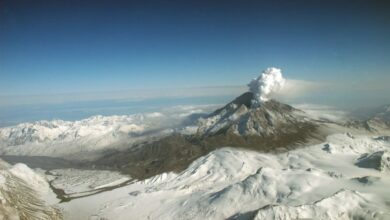Brand New Vs. Used Car: Which One Should You Buy?

So, you’ve decided you need a new car, but can’t quite decide which one will be best for you in the long run between a new car and a used one? If that’s you, then you don’t need to worry.

It’s a problem that boggles many, and some, without the right guidance, end up in a debt rut or with a car that’s endlessly in need of repairs. But, you actually don’t have to end up in either of these places.
By the end of this article, you should know which choice is good for you, and when you do, all you’ll need is a good, reliable car dealer to help you buy the best vehicle for your unique needs. If you’re unsure where to start, you can visit this website to kick start your search, or continue reading this article for vital insights.
Pros Of Buying A Used Car
Buying a used car can be an attractive choice, depending on what you’re looking for. If you’re looking for a route that saves you the most money, then, no doubt, a used car could be a good choice for you.
1. It’s Usually Cheaper
It’s not uncommon to get a late model car at a heavily discounted price if you’re buying a used car. If you’re already cringing and assuming the car is only priced that low because of its many faults, then that’s another worry you shouldn’t have. The availability of pre-certified used cars makes it very safe to buy used cars that are close to new and with a new warrant beyond its original factory warranty.
This strong warranty that you get on certified pre-loved protects you from what would could be the biggest downside of buying a second-hand car.
2. It Maintains A Good Resale Value
If you play your cards right, as well as take good care of your second-hand car, you’ll likely be able to sell it for close to the same price you bought it for.
To make things even better, you could consider getting financing options via a trusted credit union or a bank.
Cons Of Buying A Pre-Loved Car
It’s not all roses when it comes to buying used cars. There are downsides, too, especially if you’re buying your car from an individual.
1.Lack Of Reliability
When buying from individuals, you’re almost always not certain of the reason. It could be that they found a hard-to-repair fault that made them want to dispose of it. And, you don’t want to end up with a car that spends more time at the mechanic’s than on the road.
2. Compromise
When buying a second-hand car, you’re not just walking into a car dealership and choosing a precise car from the precise model you want. Most times, you get to compromise on which color and features your car should have in favor of which one has the best mileage or is in overall better condition.
Pros Of Purchasing A New Car
Buying a new car, although not necessarily a walk in the park, also comes with significant advantages.
1.Easier Shopping
Shopping for a new car is just way easier than shopping for a used one. You can pick the exact car you want, knowing that whichever car you drive away with, it will be in perfect condition, and all you have to do is focus on negotiating the price.
2. Better Financing Options
You’re more likely to get more favorable interest rates when buying a new car than a used one. In the end, after negotiating and applying incentives, you might find yourself paying thousands less than the initial sticker price.
3. Advanced Tech
Automakers are making improvements to cars every time, and a new car is likely to be more advanced, as well as have less emissions and improved gas mileage, among other tech improvements.
Cons Of Buying A New Car
Buying a new car has its own fair share of disadvantages.
1.Depreciation
Buying a new car almost guarantees that you lose thousands of dollars in the first two or three years after your purchase. Depreciation is going to hit your vehicle the hardest during its first few years. And, by buying new, you’re signing up to take this hit.
2. Higher Debt
On top of a very fast depreciation rate, with a new car, you’re more likely to be in debt for a longer period. New vehicles are charged more by insurance companies since they predict that it will cost them more to replace.
Conclusion
Now that you know the advantages and disadvantages of each choice, you’re ready to make the decision that’ll serve you best. The best choice almost always depends on what matters the most to you. The best way to choose is to go through the list of what you stand to gain and lose through each choice, then decide what you’re willing and unwilling to compromise on.




